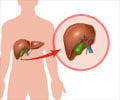Anti-microbial medications are a common cause of drug-induced liver injury (DILI) leading to acute liver failure (ALF), with women and minorities severely affected, reports a ten-year study.

Patients with liver failure resulting from DILI may experience deep jaundice, fluid retention, advanced coagulopathy and coma.
In the current study, researchers investigated liver injury and failure caused by drugs other than acetaminophen.
Detailed case reports were collected from 1,198 subjects with ALF enrolled at 23 sites participating in the National Institutes of Health-funded Acute Liver Failure Study Group, led by Principal Investigator, William M. Lee, from the University of Texas Southwestern Medical Center in Dallas, TX.
Researchers identified 133 patients with DILI with 71pc of those cases in women.
Furthermore, the research team documented a disproportionately high number of minorities with DILI ALF, including African-American, Hispanic and other minority groups.
Advertisement
Anti-microbial agents were found to be the most common cause of DILI ALF cases and included anti-tuberculosis drugs (25), sulphur-containing drugs (12), nitrofurantoin (12), other antibiotics (7), antifungal agents (6), and anti-retroviral drugs (4).
Advertisement
The study has been published in the December issue of Hepatology, a journal of the American Association for the Study of Liver Diseases.
Source-ANI














